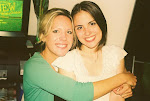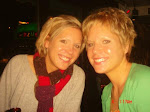
I close my eyes and bite into a ripe mango. I vividly remember Musa my mango collector. He used to run to my front porch with a dirty shirt full of mango's. We would sit in a tree with my Swiss army knife until every mango was sliced and each child could have a bite. I would throw the peels on the dirt courtyard floor knowing that Daada, my neighbor, would sweep it up in the morning. We would sit for hours until night fell with the mango juice

on our hands and clothing that seemed to glow in the night sky. Neighborhood girls came running daily to the tree to deliver more mango's. I would lie there with my legs dangling down like one of the tree limbs so comfortab
le that I could fall asleep. I suddenly become aware of my surroundings and remember that I am in San Francisco. The mango collector is gone and instead of a dirt floor I sit on a shiny green park bench under the shade of an oak tree. A lady walking her dog passes, she stares at me like I don’t belong. I want to tell her it is my first day back from living in Africa, but I just smile and nod. I toss my mango; it just doesn’t taste the same without Musa siting next to me.

To visit home after living in West Africa for a year is an interesting experience. It was great to visit with family and friends during the holiday season. We baked pies, had numerous parties, went hiking, and went out many dinners. When people ask me “How is Africa?” I never know what to say, how to explain this life out here. It's not easy.

My parents recently visited me in The Gambia. I am very proud of them. They handled situations well and never complained. We ate the local food, rode on geles, and they saw a developing country how the locals live it. My village greeted them by killing a chicken and making baobab juice. I took them on tours of the local schools and country side. This is a trip that I know we will all forever remember and cherish.
Hope everyone at home is having a great New Year and holiday season!
-Kat


 I recently have been given the opportunity to work in western Tanzania. I will be helping with the Tanzania Lighting and Power project with the company Dissigno. I will be heading over to Tanzania in mid March. Here is a link to their blog:
I recently have been given the opportunity to work in western Tanzania. I will be helping with the Tanzania Lighting and Power project with the company Dissigno. I will be heading over to Tanzania in mid March. Here is a link to their blog:

















